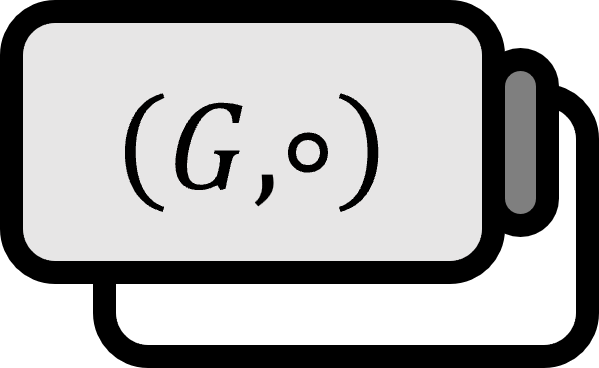Solid State Physics
Build-up
A ring $R$ is defined to have a characteristic $n$ that is the smallest natural number such that all elements of $R$ satisfy $n \cdot r = 0$. If no such natural number exists, $0$ is defined as the characteristic of $R$. Rings that possess a multiplicative identity, that is, a unity element, exhibit the following properties:
- [1]: If the characteristic of $R$ with a unity element is $n>1$, then $R$ contains a subring isomorphic to $\mathbb{Z}_{n}$.
- [2]: If the characteristic of $R$ with a unity element is $0$, then $R$ contains a subring isomorphic to $\mathbb{Z}$.
Similarly, a field $F$, for a prime number $p$, presents the following properties:
- [1]’: If the characteristic of $F$ is $p$, then $F$ contains a subfield isomorphic to $\mathbb{Z}_{p}$.
- [2]’: If the characteristic of $F$ is $0$, then $F$ contains a subfield isomorphic to $\mathbb{Q}$.
Definition 1
Here, the integer field $\mathbb{Z}_{p}$ and the rational field $\mathbb{Q}$ are referred to as prime fields.
Explanation
The fields labeled as “prime” are exceedingly significant.
Considering the converses of [1]’ and [2]’, if there is no subfield isomorphic to these prime fields, then $F$ cannot be a field. Thus, they are particularly useful in determining whether something is a field, and notably have the advantage of being familiar to us.
The concept of characteristic can be somewhat confused with nilradical, but the former pertains to addition $\displaystyle \sum_{i=1}^{n} r = nr = 0$, while the latter concerns multiplication $\displaystyle \prod_{i=1}^{n} a = a^{n} = 0$. Furthermore, the characteristic is interested in the minimum $n$ that satisfies the condition, whereas the nilradical is concerned with satisfying $a$.
Fraleigh. (2003). A first course in abstract algebra(7th Edition): p250. ↩︎
